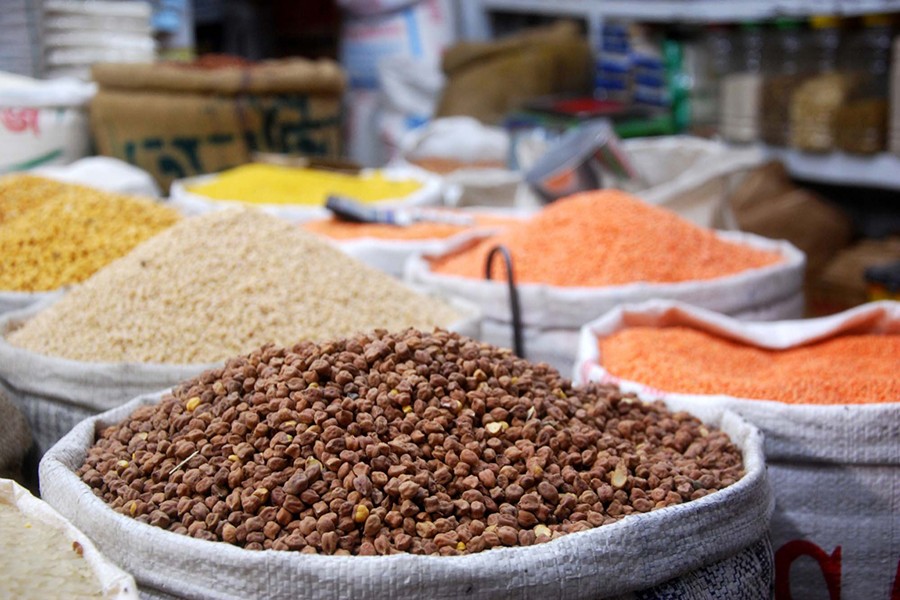
Published :
Updated :

With the holy month of Ramadan about a month and a week away, the already volatile key essential commodities market is poised to turn further eruptive. Given that the essentials like onion, sugar, edible oil, gram, etc., the chief ingredients of special dishes prepared during Ramadan month, will be in high demand, one need not be a soothsayer to predict that their prices are also going to go up further. Obviously, to maintain a steady supply of, particularly, the key Ramadan essentials, the government, as reported in the last Saturday's edition of this paper, has requested the Indian ministry concerned for issuance of permission, under special consideration, to Bangladesh for import of 100,000 tonnes of sugar and 50,000 tonnes of onion.
Understandably, Bangladesh seeks special permission to import sugar and onion from India because of the latter's export restrictions on those two items. As reported in both local and international media, India's action was prompted by the urgency to keep its domestic market for sugar and onion stable ahead of the upcoming national election in that country. India has every right to take any decision on its external trade in its national interest. But given the history that export restrictions on certain essential agricultural produce and products like onion and sugar by India leave serious repercussions on the Bangladesh market, there should have been a long-term agreement between these two friendly governments so that Bangladesh could enjoy a smooth supply of those items on easy terms under any circumstances. Had there been such prior arrangements, the government would not have to resort to such last-minute efforts to seek its friendly neighbour's special favour.
The good news is the ministry concerned of India has assured its Bangladeshi counterpart of supplying the commodities asked for under special consideration. Also, it is further learnt that Bangladesh has also requested India to ensure meeting the former's earlier proposed annual import quota for the items. Hopefully, the Indian side would consider that request favourably. While the communication between the two governments on the supply of onion and sugar to Bangladesh is going on, the prices of these items in the local market has already started to turn unsteady. From the retail traders' point of view, there is scarcity, especially of sugar, in the market. Unsurprisingly, retailers are not abiding by the government-fixed price for sugar. This is obviously not a positive sign for the market behaviour, especially before Ramadan. According to the daily market review of the government agency, the Trading Corporation of Bangladesh, sugar has been selling in the local market at Tk 140 to Tk145 a kilogramme (kg). Notably, regarding sugar, Bangladesh is practically entirely depended on import as 98 per cent of its annual demand of 2.0 million tonnes is met through import.
So, any supply uncertainty of the item results in uncontrolled hike in its price in the market. India being the major player in global sugar market followed by Brazil, the former's indefinite extension of export restriction has already upset the world's sugar market. In that case, the government needs to redouble its efforts to ensure its supply from Indian source within the shortest possible time. Similarly, though it is harvesting time for onion, it is still selling at an exorbitantly high price in the local market.The government should, as it has promised, take urgent steps to ensure unimpeded supply of the key essential commodities so that those are available at an affordable price, especially during the holy month of Ramadan.


 For all latest news, follow The Financial Express Google News channel.
For all latest news, follow The Financial Express Google News channel.